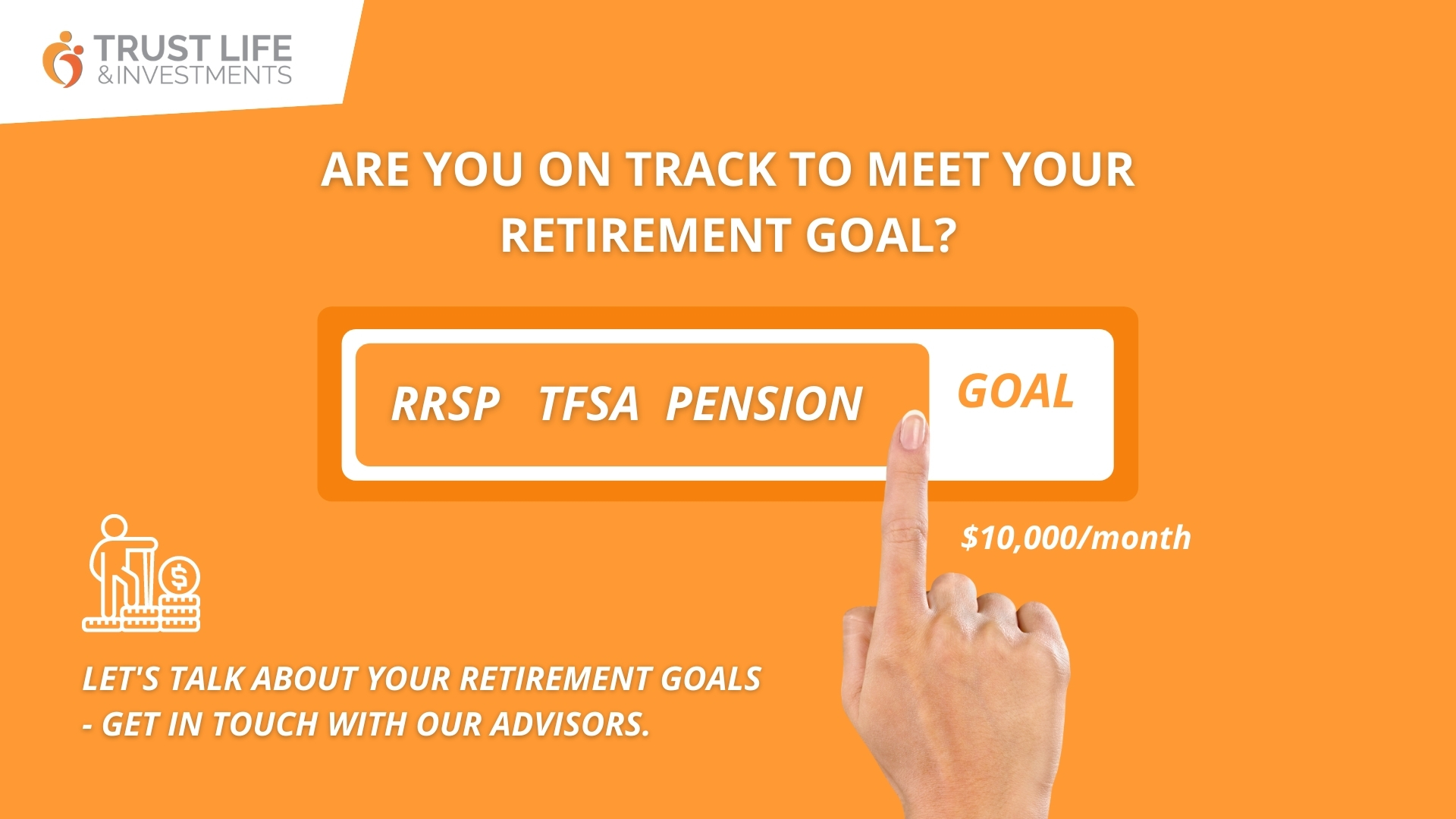How to Maintain Your Standards of Living After Retirement

Maintaining the standards of living after retirement can be difficult. But it can be done with proper financial planning keeping the long-term goal in mind. The following tips from our Trust Life advisors can help.
64th birthday – that’s the time when most Canadians retire. With proper retirement planning, you too can enjoy your golden years of retirement. Let’s see how.
Income

During your retirement, you are most likely to rely entirely on investment income along with your Old Age Security pension from the Government, and your employer’s retirement plan (if any). Annuities can also be a great way to ensure you are having a stable and secure source of income.
You may also think of splitting your income with your spouse, which can be beneficial to you depending on the situation.
If you have been saving systematically throughout your life, you will use the money you have saved in your RRSP (Registered Retirement Savings Plan), Registered Retirement Income Fund (RRIF), Life Income Fund (LIF), and TFSA (Tax-free Savings Account) during your retirement.
Additionally, there are two pension plan programs in Canada that can help you save throughout your life. If an individual is in Quebec, s/he can contribute to the Quebec Pension Plan starting from a young age of 18 years (applicable only for individuals with income over $3500/year). As far as the rest of Canada is concerned, they can contribute to the Canada Pension Plan.
You will receive this pension after 60.
Expenses
Make sure you know what exactly your base expenses are like medications, groceries, rent, dental care, mortgage payments, insurance premiums, etc. Also do not forget to consider rising medical expenses along with other costs of equipment like ergonomic chairs, which will increase as you age. All these you can use to create a daily budget after retirement and stick to it.
Some expenses will undoubtedly go down as you retire. For example, all expenses related to your job will disappear; your taxes will go down significantly; your car gas expenses along with maintenance should also go down because you won’t have to commute to work every day; your expenses on clothing and fashion should also go down as you are not likely to spend more on buying work clothing, dry cleaning, etc.
There are also other factors as well – maybe you have already finished paying off your mortgage, your kids have become financially independent, you will get senior citizen discounts at movie theatres, pharmacies, etc.
The keyword is “balance” when it comes to hobbies
When it comes to expenses related to hobbies, the keyword is balance. Of course, you should treat yourself to little luxuries after retirement, such as going out to a fine dining restaurant, but that should not happen every day.
Be careful when making large purchases. Make sure it is within your financial ability. For example, assess your needs closely before going all-in into a costly renovation project or purchasing a sports car. Travel strategically, preferably outside of standard vacation times to reduce the cost.
Also, check out these activities that can help you have fun without breaking the bank:
- Explore new areas in your neighborhood or the city – take long walks.
- Be on the lookout for free or inexpensive activities happening in your city.
- Enjoy spending time in parks that are accessible to anyone.
- Take up new learning activities only for the pleasure of learning something new – it doesn’t have to be expensive, how about learning a new language?
- Pursue that hobby you did not have time for while you were working – maybe, painting?
The key to enjoying retirement is preparation. The right financial plan can help you cruise into your golden years of retirement. Need some professional retirement planning advice? Get in touch with our financial advisors – free consultation, zero obligation! Start today for a better tomorrow.
